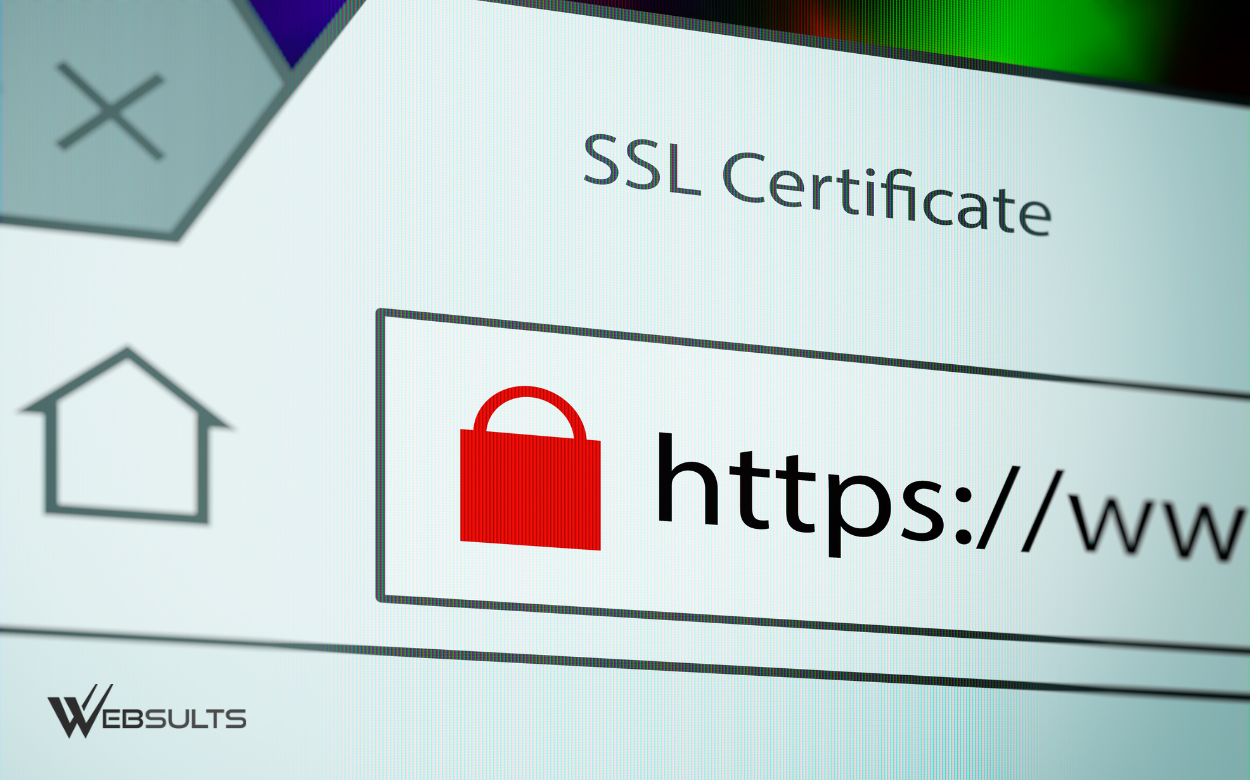Users on the Internet may find that their personal information is asked for quite frequently, especially when making purchases. Many are hesitant to give out that information, even if a reputable supplier is the one they are completing the transaction with. Companies understand the hesitation and need to implement different ways to combat the distrust and to bring comfort by providing safe and secure websites. One way that businesses do this is by using a Secure Sockets Layer (SSL) certificate to provide cryptography to their user communication.
SSL (and its newer successor, TLS) is now a standard requirement for modern websites. With rising cybersecurity risks, search engine updates, and higher user expectations, having an SSL certificate is no longer optional—it’s essential for user trust, conversions, and visibility in search results.
History of SSL Certificates
The SSL Certificate and its benefits have been around for years and continues to provide a safe experience for those who are using it. It was introduced by Netscape in 1994 when there was a growing need for data transport security. It didn’t become as stable and well known until 1996 when version 3 came out. Since then, SSL certificates are incredibly important for anybody who uses the internet as it protects them during daily use.
Today, SSL has evolved into the TLS (Transport Layer Security) protocol, which is considered the modern and more secure version of SSL. Even though most people still say “SSL,” the certificates issued today follow updated TLS standards for stronger encryption, faster performance, and better protection against modern cyber threats.
Nowadays, the Certificate Authority (CA) is tasked with issuing and improving SSL certificates which now is known as one of the safest ways to browse the internet.
What an SSL Certificate Does
An SSL certificate does a lot for a company security wise by adding different features to your website to encrypt data. When a potential client opens your website from a browser, the SSL certificate encrypts the connection for extra protection. If you were to put personal information into a website the SSL Certificate makes sure that the data inputted can only be seen by the intended recipient.
It also provides authentication to ensure that the data you send is going to the right person and not an imposter who seeks your information for their own gain. Modern certificates also support additional layers of trust such as certificate transparency logs, helping browsers detect fraudulent or misissued certificates more quickly.
SSL certificates protect activities such as:
- Online purchases
- Form submissions
- Account logins
- File downloads
- Customer portals
- Any page where personal or business information is exchanged
Even informational websites benefit from SSL because most browsers now mark any non-HTTPS site as “Not Secure,” regardless of whether transactions occur.
SSL Certificates and SEO
Another added benefit to getting an SSL Certificate is that it can help improve your Search Engine Optimization. Google uses site security as a direct ranking signal in their results pages. When you get an SSL Certificate, your website’s URL will contain HTTPS at the beginning rather than HTTP. Google looks for this HTTPS when determining if a site is relevant to a user search and if all else is equal, ranks the site with HTTPS over the site with HTTP.
In recent years, Google has reinforced HTTPS as a requirement for good page experience and Core Web Vitals—meaning secure sites are more likely to earn higher rankings and user trust.
This means that if you have a competitor without an SSL Certificate, your SSL could give you the edge over them to be shown to potential customers first based on Google’s rankings.
The parameters set up by Google isn’t the only reason an SSL can help with your SEO, though. The lack of an SSL Certificate on your site could mean that the browser a potential customer is using will warn them that the site is not secure. This could scare off your users and, not only will that directly impact your sales and leads, their quick clicking away will increase your bounce rate and affect your search engine rankings as a result.
Simply put, the longer a user stays on your website, the higher your rankings on search engines will be, so it’s in your best interest to make sure all users feel like your website is up-to-date and secure. HTTPS also helps ensure that referral data is preserved correctly in analytics tools, giving you more accurate traffic reporting.
How to Get an SSL Certificate
If a user needs to input private information such as a credit card number, name, phone number or even email address, they may not feel comfortable doing so without assurance that the website they are visiting is legitimate and secure. If you look to the top left of your screen you may see a lock in your web address bar. This symbol means the website is secure and as a result most people look for that when browsing a website.
Google also notes if a website does not have an SSL certificate and warns browsers that what they are looking at may not be in their best interest. Additionally, most online purchases require an SSL Certificate. Knowing that, it’s easy to see why getting one would be a priority for most web users.
There are different ways to secure one and some are more expensive than others. However, there are free options available to obtain an SSL Certificate as well.
- Lets Encrypt – This organization provides free SSL Certificates to websites who need them and has offered more than a billion so far!
- WordPress Website Hosts – Many website hosts such as WPEngine and Dreamhost offer a free SSL Certificate if you are on one of their hosting plans.
- Digicert – Another recognized provider is Digicert and puts emphasis on the fact that 90% of Fortune 500 companies employ their service. This one has a price tag of $207 a year.
While free SSL certificates work well for most websites, businesses that require higher levels of validation—such as enterprise companies, large ecommerce brands, or financial institutions—may still prefer paid certificates for advanced verification and warranty coverage.
How to Confirm that Your Website SSL is Installed Properly
Once you pick the method you want to obtain your SSL Certificate, you may be wondering if it has been installed correctly and is ready for encryption. The good news is that there are different and free ways to ensure that your website is protected and ready for users.
-
SSL Checker – A great free and easy to use resource is the SSL Checker where all you have to do is input your website’s URL and see if everything is working well with your SSL Certificate.
-
Cert Logik – Another great resource for you to use is Cert Logik, a free SSL checker which also provides a discovery tool to manage your certificates on your network.
A quicker way to check on your certificate is to see if the padlock is locked in your URL bar or if you have a site seal from your provider. You can also click the padlock to view certificate details, issuing authority, and expiration date. It’s important to renew your SSL on time, as expired certificates will immediately trigger browser warnings.
Websults | Clearwater, FL
Websults can help you set up your website and accompanying SSL Certificate. As an experienced web development / WordPress agency, Websults will listen diligently to your needs, ask questions to help identify any other needs or future needs, and will work hard to give you a competitive advantage in your industry. Are you looking for a second opinion on your website or unsure if your SSL is installed correctly? Contact Websults to schedule a free consultation via GoToMeeting or phone.




